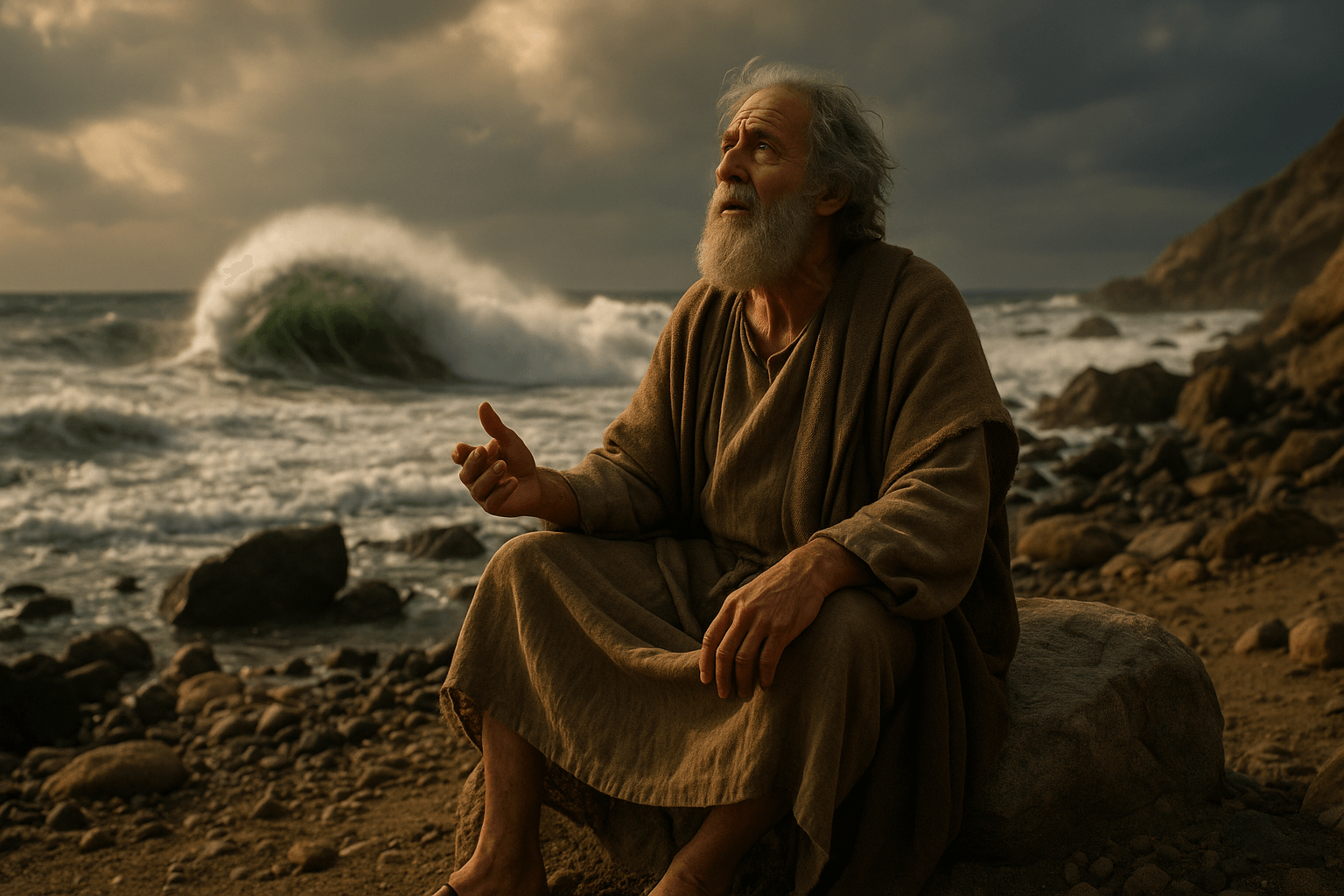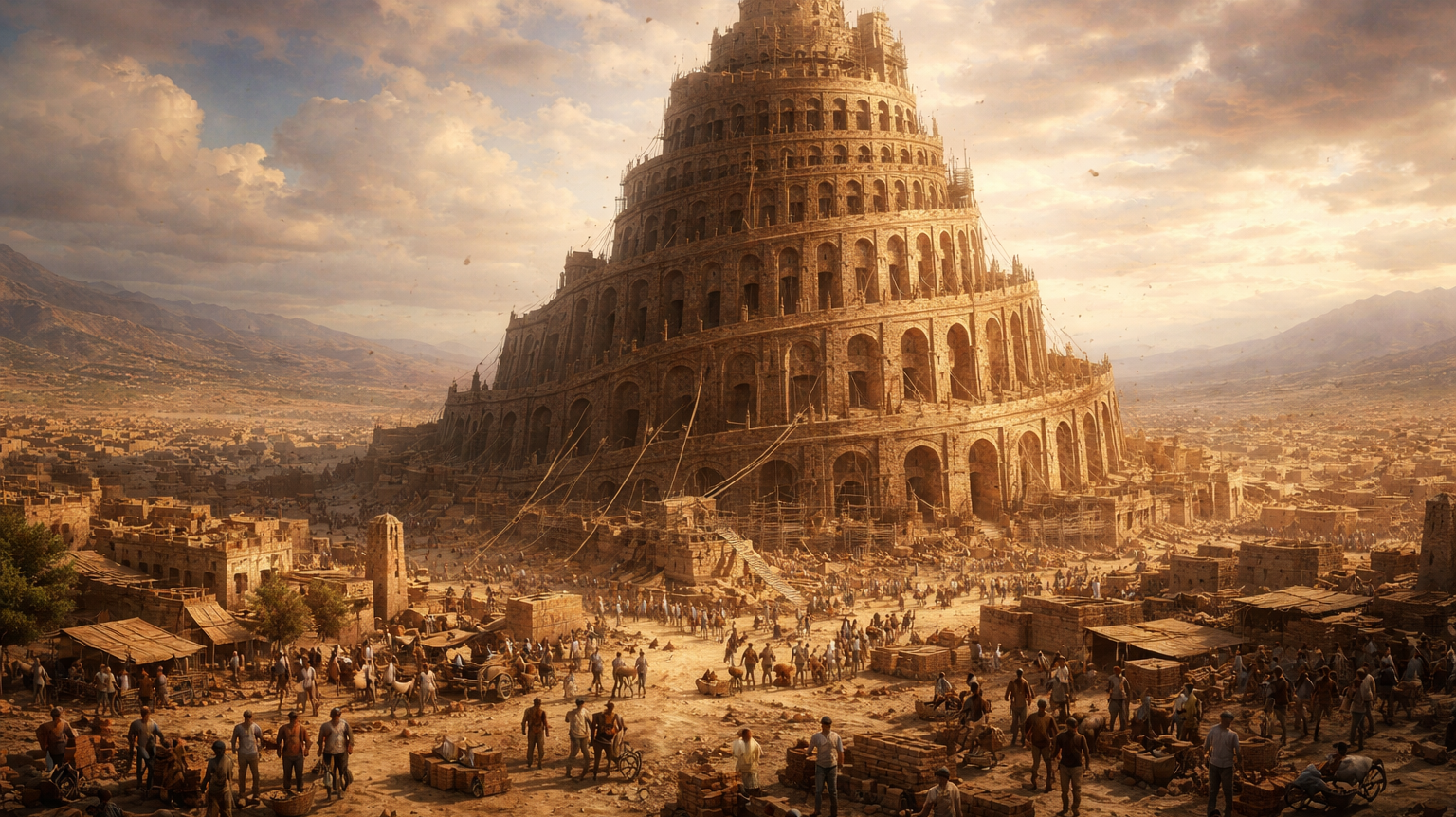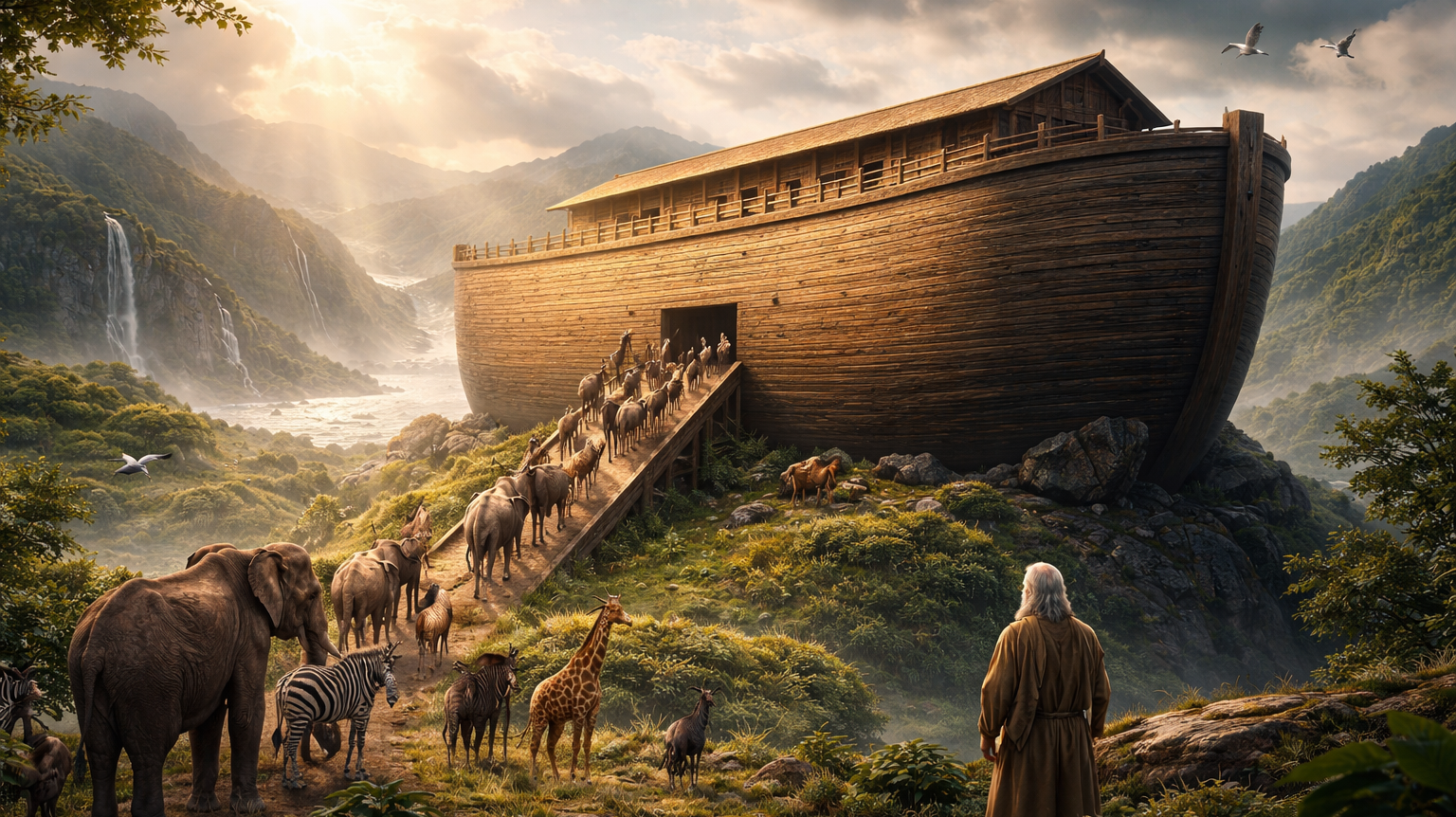Leviathan is one of the most mysterious and powerful creatures mentioned in the Bible. Some interpret it as a literal sea creature, others as a symbol of chaos, evil, or God’s might. Across different books of Scripture—Job, Psalms, and Isaiah—Leviathan appears in poetry, prophecy, and creation praise.
This article explores what the Bible says about Leviathan, what it may represent, and why it matters for us today.
What Is the Leviathan?
The Hebrew word Leviathan (לִוְיָתָן, liwyāṯān) means something twisted, coiled, or writhing. Ancient cultures often viewed the sea as a place of danger and chaos. Leviathan is often pictured as a mighty sea monster that no man can tame. It reflects both the raw power of creation and the danger of rebellion against God.
Leviathan in Job: Power Beyond Man’s Control
The clearest and most detailed description of Leviathan is found in Job 41. God speaks directly to Job, asking him if he can control or defeat this great creature.
Can you pull in Leviathan with a fishhook or tie down its tongue with a rope? — Job 41:1 (NIV)
Leviathan is described as terrifying. Its body is covered with impenetrable scales. Fire and smoke come from its mouth. Even the most fearless men retreat from it.
Its snorting throws out flashes of light; its eyes are like the rays of dawn. Flames stream from its mouth; sparks of fire shoot out. — Job 41:18–19 (NIV)
Nothing on earth is its equal— a creature without fear. — Job 41:33 (NIV)
Meaning: This passage is less about zoology and more about theology. God uses Leviathan to show Job the limits of human strength and the limitless power of God. If Job cannot tame Leviathan, how can he question God’s plan?
Leviathan in Psalms: A Creature of God's Creation
Leviathan appears again in the book of Psalms, which offers two different perspectives.
First, in Psalm 104, Leviathan is part of the natural world created by God.
There the ships go to and fro, and Leviathan, which you formed to frolic there. — Psalm 104:26 (NIV)
Here, Leviathan is not a threat, but a creature enjoying life in the sea. God created it, just like everything else. It reminds us that even the most massive and fearsome beings were made by God and serve His purposes.
Then, in Psalm 74, Leviathan is a symbol of chaos or evil, defeated by God.
It was you who crushed the heads of Leviathan and gave it as food to the creatures of the desert. — Psalm 74:14 (NIV)
This image may refer to God's past victories over nations or dark forces. It echoes other ancient Near Eastern texts where gods battle sea monsters. But here, it’s the Lord of Israel who triumphs over Leviathan.
Leviathan in Isaiah: A Picture of Evil to Be Defeated
In Isaiah 27, Leviathan takes on an even more symbolic meaning. It is described as a twisting serpent and is directly connected with evil that opposes God.
In that day, the Lord will punish with his sword— his fierce, great and powerful sword— Leviathan the gliding serpent, Leviathan the coiling serpent; he will slay the monster of the sea. — Isaiah 27:1 (NIV)
This prophecy speaks of a future time when God will destroy Leviathan. Here, it may represent Satan, a wicked nation (like Babylon or Egypt), or evil systems that rise against God's kingdom. Whatever the case, the outcome is certain: God wins.
What Does Leviathan Represent?
Depending on the passage, Leviathan can mean different things. Here's a quick comparison:
| Interpretation | Explanation |
|---|---|
| Literal Sea Creature | Some say Leviathan was a large marine animal like a whale, crocodile, or extinct sea reptile. |
| Symbol of Chaos | In Job and Psalms, Leviathan reflects the untamable forces of nature and the sea. |
| Symbol of Evil or Satan | In Isaiah, Leviathan points to a greater enemy of God—possibly Satan or evil itself. |
| Enemy Nations | Psalm 74 and Isaiah may use Leviathan to describe Egypt, Babylon, or Assyria—oppressive empires. |
Parallels in Revelation: The Sea Beast and the Dragon
Although Leviathan is not named in the New Testament, the Book of Revelation shares similar imagery. Revelation speaks of a dragon and a beast rising from the sea, connected to Satan and end-time rebellion.
The dragon stood on the shore of the sea. And I saw a beast coming out of the sea. — Revelation 13:1 (NIV)
And the great dragon was hurled down—that ancient serpent called the devil, or Satan, who leads the whole world astray. — Revelation 12:9 (NIV)
These creatures, like Leviathan, bring terror and oppose God. But the final message is the same: God defeats them all.
Lessons from Leviathan
Though strange and mysterious, Leviathan teaches us deep truths about God and creation.
- God is Greater Than Any Force – Whether chaos, monsters, or enemies, nothing is beyond His power.
- Humility Before God – Like Job, we must remember our limits and trust in God’s wisdom.
- Victory Over Evil – Leviathan may represent evil, but God will crush it in the end.
- God’s Creative Power – Even massive creatures like Leviathan exist by God’s will and design.
























